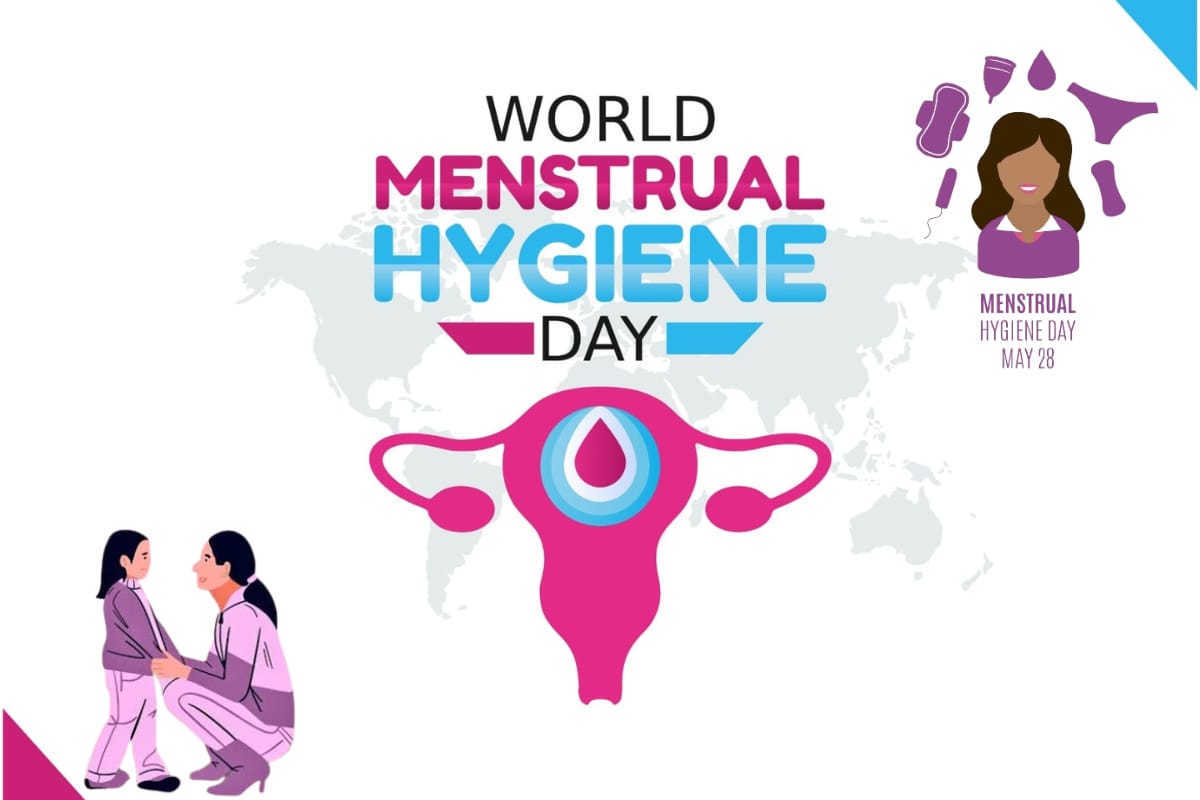NEW DELHI:As the world prepares to commemorate Menstrual Hygiene Day on May 28, India stands at the forefront of efforts to raise awareness and promote period equity. Menstrual Hygiene Day serves as a reminder of the importance of good menstrual hygiene practices, access to menstrual products, and the need to break the stigmas surrounding menstruation.
Menstrual Hygiene Day, observed annually on May 28, aims to educate individuals about proper menstrual hygiene practices and eliminate the taboos associated with menstruation. This date symbolizes the average menstrual cycle of 28 days, with individuals typically menstruating for five days.
Poor menstrual hygiene can lead to various health issues, including urinary infections, fungal infections, reproductive tract infections, and even infertility. Factors such as unclean sanitary pads, prolonged use of a single pad, improper hand hygiene, and incorrect washing techniques contribute to these risks.
Millions of women and girls worldwide, including those in India, face period poverty, which refers to the inability to afford menstrual products and access proper sanitation facilities. Stigma, high costs of menstrual products, and lack of water and sanitation infrastructure perpetuate period poverty, impacting education, work, and health.
ALSO READ:Massive fire at Delhi baby care hospital claims lives of seven newborns
More than 1.5 billion people globally lack basic sanitation services.
Around 90% of women with 12 or more years of schooling in 17 states and Union territories in India use safe period products.
According to the fifth National Family Health Survey (2019-2021), around 90% of women with 12 or more years of schooling in 17 states and Union territories used safe menstrual products. This marks a significant improvement from previous surveys and underscores the progress made in menstrual hygiene management in India.
India has implemented various schemes to promote menstrual hygiene, including the National Health Mission’s menstrual hygiene scheme targeting rural adolescent girls. Additionally, states like Maharashtra, Rajasthan, Andhra Pradesh, Kerala, Odisha, Chhattisgarh, and Sikkim have initiatives to distribute subsidised or free sanitary napkins.
ALSO READ:Neeraj Chopra withdraws Ostrava event, citing muscle stiffness
Social taboos and cultural practices surrounding menstruation continue to limit the lives of girls and women in India. Initiatives like menstrual leave policies face challenges in implementation, particularly in the informal sector. However, there has been progress in raising awareness and promoting menstrual health and hygiene, reflected in initiatives such as the ‘Right of Women to Menstrual Leave and Free Access to Menstrual Health Products Bill.’
Efforts to promote menstrual hygiene must be inclusive of all individuals who menstruate, including transgender men and non-binary individuals. Addressing systemic issues such as cultural practices, access to health services, and advocacy is crucial to achieving period equity and fulfilling sexual and reproductive health rights.
As India marks Menstrual Hygiene Day, it acknowledges both the progress made and the challenges ahead in promoting menstrual health and hygiene. By fostering open discussions, advocating for access and affordability, challenging stereotypes, and promoting inclusivity, India strives towards a future where menstruating individuals can manage their periods with dignity and without barriers.
In conclusion, Menstrual Hygiene Day serves as a reminder of the importance of prioritizing menstrual health and hygiene as a fundamental human right. By working together to address the challenges and barriers faced by menstruating individuals, India can pave the way for a future where everyone can manage their periods with dignity and without limitations.










